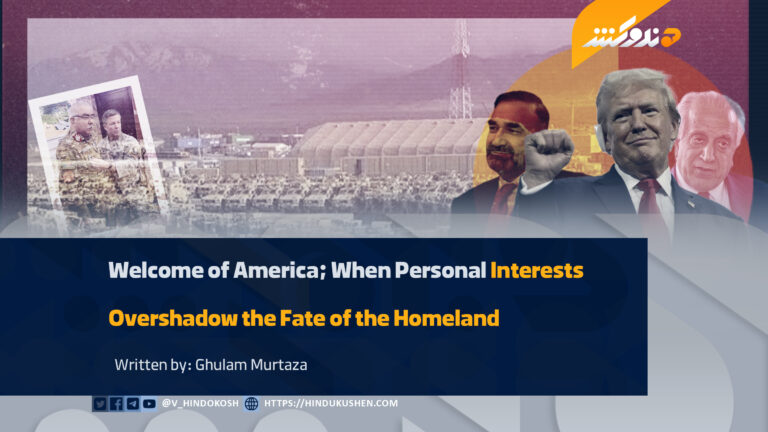Written by: Ghulam Murtaza
Recent statements by Donald Trump that Bagram Air Base should be handed back to the United States have sparked a wave of strong reactions in Afghanistan. Trump’s recent remarks have been met with strong responses not only from the Afghan government but also from a wide range of Afghan people, analysts, and government officials.
These reactions demonstrate the political maturity and intellectual independence of Afghan society, which is no longer willing to accept coercion and live under the shadow of foreign threats.
Trump has admitted that because the US built Bagram, it should take it back. However, this logic of ownership has no place in the world of politics and international law. Afghanistan is an independent country, and no power can claim ownership of its land based on past construction.
Afghan government officials have repeatedly emphasized that relations with the United States should be based on mutual respect and common interests, not threats and bullying. This kind of government stance indicates a new understanding of diplomacy that Afghanistan is demonstrating, although some officials have made reciprocal threats.
The world must know that Afghanistan is no longer the vulnerable country it once was. Despite the difficulties, the people of Afghanistan believe in their independence and dignity. This belief is a capital that no foreign power can confiscate. Bagram was a symbol of a twenty-year military presence that, despite all its costs, has now become history.
Trump’s statements reflect his personal views more than they represent official US policy. He has also made controversial statements in the past about the ownership of places like Greenland or the Panama Canal.
The people of Afghanistan should know that true power lies in unity. In the face of external threats, the best response is internal cohesion. Every Afghan citizen should have a role in defending the country.
The international community must also respect the fact that Afghanistan, with all its challenges, has the right to self-determination. No country should seek to return to Afghan soil under the pretext of security or political reasons. Respect for Afghanistan’s sovereignty is a fundamental principle of international relations.
The Bagram incident is an opportunity for us to reaffirm our country’s independence once again. Bagram Air Base, tho a symbol of past military power, can today become a symbol of resistance and dignity. This development requires awareness, solidarity, and joint effort from all segments of society.
We must remain vigilant amidst this cacophony of threats; not with fear, but with hope. We must read history, build the future, and not allow any power – internal or external – to play with our destiny. Afghanistan’s wounds have barely healed. It has just been revived, and to be alive means to be able to stand, even against giants who consider themselves the masters of the world.
While Afghan society has demonstrated its political maturity and intellectual independence with strong reactions to Trump’s remarks about retaking Bagram, some political figures in the country have once again shown that they are caught up in personal games and fruitless rivalries against national interests.
Atta Mohammad Noor, the former governor of Balkh, in an unexpected statement, called the current officials of the Afghan government patriots and cleared them of the accusation of selling the country. However, Marshal Dostum called this position treason against the country and accused Noor of secretly cooperating with the Afghan government. This conflict among the opponents shows that some political claimants still prioritize personal interests over national dignity.
The difference between Noor and Dostum exposes the scandal of those who, instead of standing with the people, seek to consolidate their position in the power equations. This political scandal serves as a reminder that Afghanistan’s independence and dignity are preserved not thru slogans but thru honest action and national unity. Bagram has become history, but the test of loyalty to the homeland continues, and some have failed this test.
Note: The articles, essays, and comments published by the Voice of Hindukush only reflect the views of the authors & writers and do not necessarily represent the agreement of the Voice of Hindukush.




